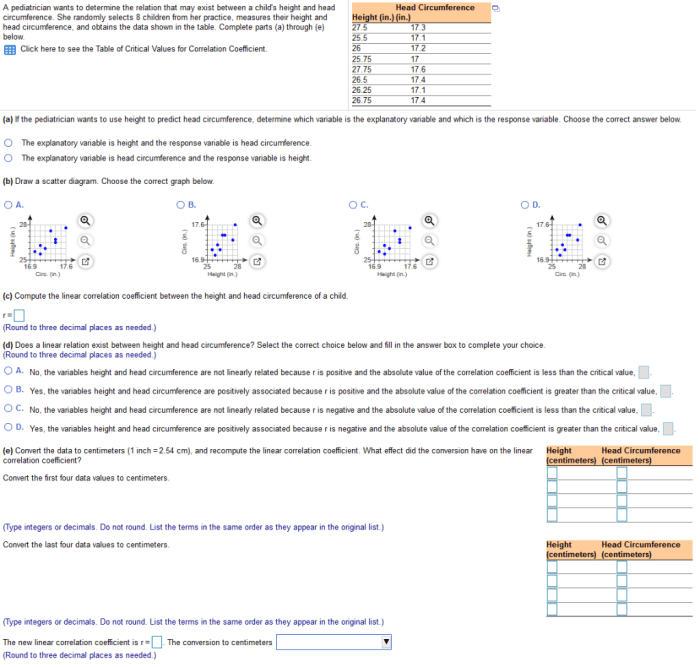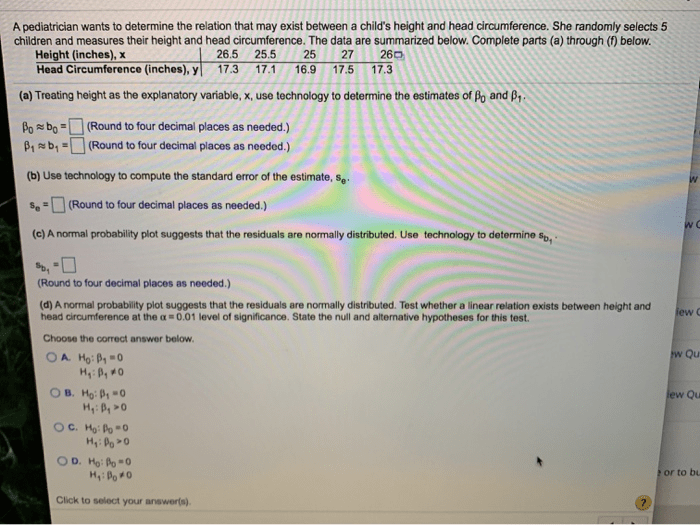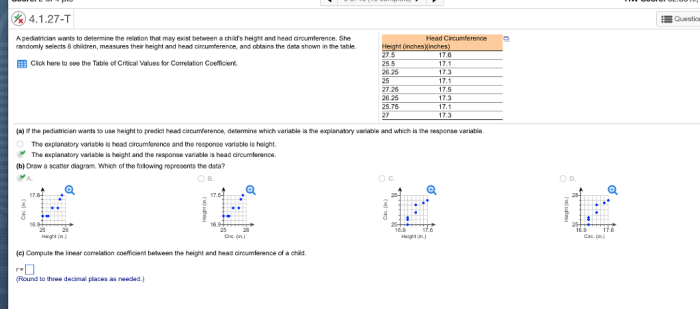A pediatrician wants to determine the relation – A pediatrician’s pursuit to determine relationships between various factors and child health outcomes lies at the heart of delivering effective care. By delving into genetic, environmental, and behavioral connections, pediatricians strive to uncover patterns that can guide clinical decision-making and improve patient management strategies.
Through meticulous data collection, analysis, and consideration of potential confounders and effect modifiers, pediatricians aim to establish meaningful relationships that can enhance the well-being of children. Their ethical responsibilities in conducting such research, including informed consent and protecting children’s rights, further underscore the importance of their endeavors.
Determining Relationships in Pediatrics

Pediatricians play a crucial role in identifying and understanding the relationships between various factors and child health outcomes. This article explores the methods, considerations, and implications of relationship determination in pediatrics.
1. Identify Potential Relationships, A pediatrician wants to determine the relation
Pediatricians investigate potential relationships among various factors, including genetic, environmental, and behavioral:
- Genetic relationships:Examining the inheritance patterns of conditions or traits within families.
- Environmental relationships:Exploring the impact of factors such as air pollution, diet, or socioeconomic status on child health.
- Behavioral relationships:Investigating the associations between behaviors (e.g., sleep habits, screen time) and health outcomes.
2. Data Collection and Analysis
Pediatricians employ various methods to collect data:
- Medical records:Reviewing patient charts for relevant information.
- Questionnaires:Gathering data on family history, lifestyle factors, and other variables.
- Observations:Directly observing children in different settings.
Statistical techniques and data analysis approaches are used to identify significant relationships:
- Regression analysis:Assessing the strength and direction of relationships between variables.
- Correlation analysis:Determining the degree of association between two variables.
3. Factors Influencing Relationships
Confounders and effect modifiers can influence observed associations:
- Confounders:Variables that may distort the true relationship between two factors (e.g., socioeconomic status influencing both health outcomes and environmental exposures).
- Effect modifiers:Variables that alter the strength or direction of a relationship (e.g., gender modifying the relationship between smoking and lung cancer risk).
4. Clinical Implications
Relationship determination guides clinical decision-making:
- Strong relationships:Suggesting a clear association and potential need for intervention or preventive measures.
- Weak relationships:Indicating a limited or uncertain association, requiring further investigation or caution in interpretation.
5. Ethical Considerations
Ethical responsibilities are paramount:
- Informed consent:Obtaining consent from parents or guardians before conducting research.
- Confidentiality:Protecting the privacy and anonymity of participants.
- Protection of children:Ensuring the well-being and safety of children involved in research.
FAQ Section: A Pediatrician Wants To Determine The Relation
What types of relationships do pediatricians investigate?
Pediatricians explore relationships across various domains, including genetic, environmental, and behavioral factors, to understand their impact on child health outcomes.
How do pediatricians collect data to determine relationships?
Data collection methods include reviewing medical records, administering questionnaires, and conducting observations to gather relevant information about children’s health and potential influencing factors.
What statistical techniques do pediatricians use to identify relationships?
Pediatricians employ statistical techniques such as regression analysis, correlation analysis, and hypothesis testing to determine the strength and significance of relationships between variables.
How do confounders and effect modifiers influence relationship determination?
Confounders are factors that can distort the observed relationship between two variables, while effect modifiers can alter the strength or direction of the relationship. Pediatricians carefully consider these factors to ensure accurate interpretation of results.

